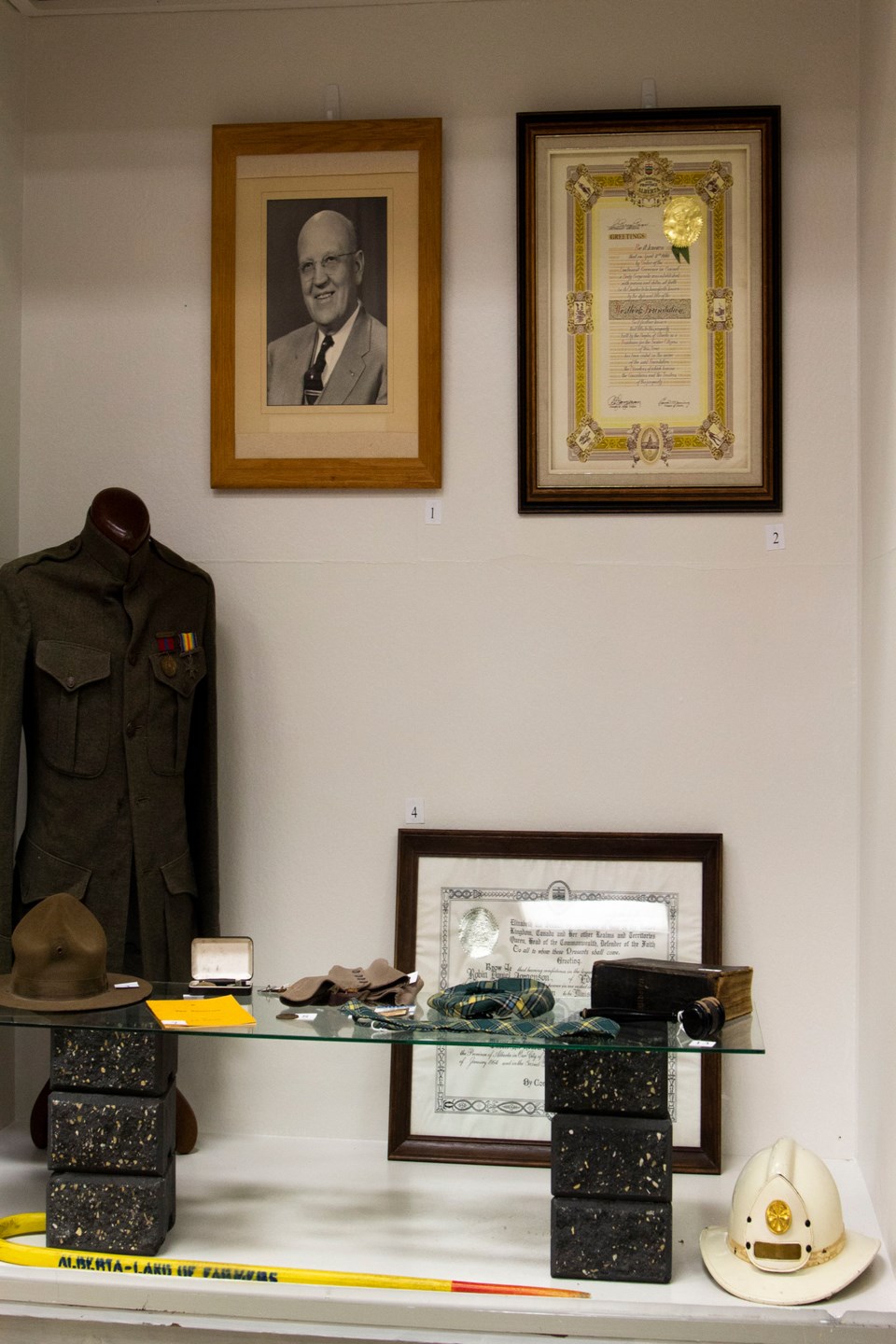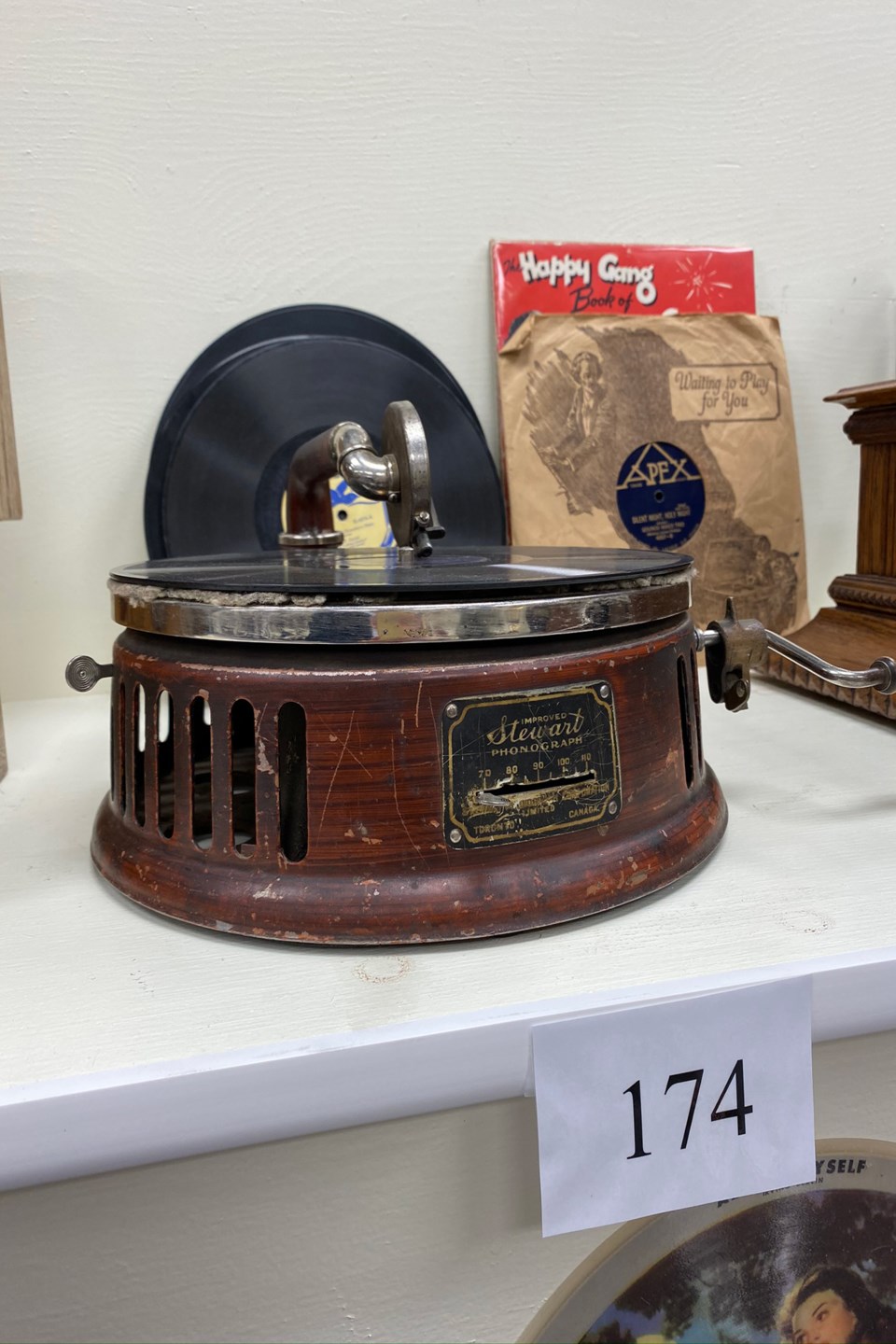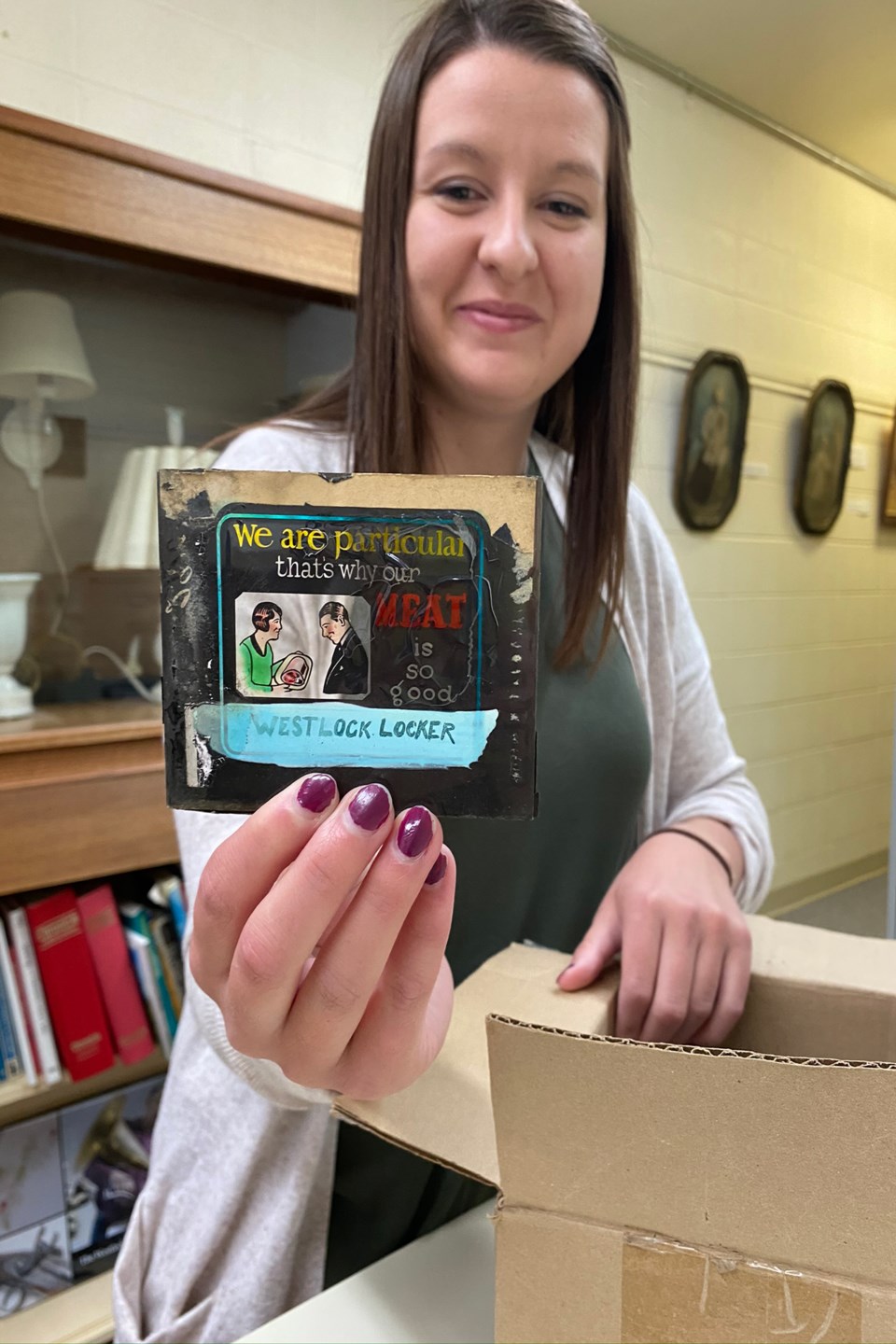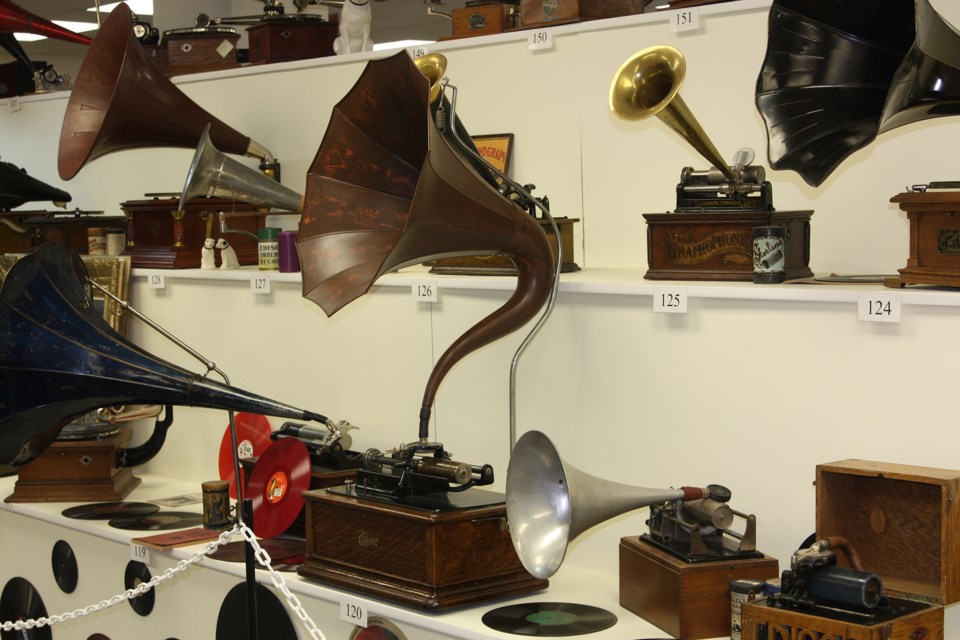WESTLOCK — The Westlock Pioneer Museum reopened June 19, with some additions to an already extensive collection.
Summer student Rebecca Skuban explained that some new objects are already on display, including some personal belongings of Westlock’s first fire chief, former MLA from 1944 to 1967, and 1954 Minister of Public Welfare, Robin D. Jorgenson.
Originally from Minneapolis, Jorgenson moved to Westlock as a child in 1908 with family. They were squatters for a while in the Hazel Bluff area—Jorgenson wrote a book about it,—then moved to Westlock for work.
 The new exhibit features the personal items of former MLA, Minister of Public Welfare and first fire chief in the Town of Westlock, Robin D. Jorgenson. (Andreea Resmerita/Westlock News)
The new exhibit features the personal items of former MLA, Minister of Public Welfare and first fire chief in the Town of Westlock, Robin D. Jorgenson. (Andreea Resmerita/Westlock News)Ultimately, as a married man, Jorgenson—and wife Jennie—operated a general store in Dapp for 14 years, before he switched to politics and won the 1944 election in what was then known as the Pembina district.
On display, the Museum has featured—among other things—Jorgenson’s Marine Corps uniform, a copy of his book, his firefighter helmet, and a gavel.
The latter is “a little appreciation gift for his many years of service as the president of the Alberta Social Credit League,” said Skuban.
As for the helmet: “the wear and tear … was more likely received from playful grandchildren than from firefighting,” reads the adjacent explanatory note.
The museum also added to the Bernard Wiese gramophone collection: a Toronto-made Stewart portable phonograph. Skuban explained people would normally take these smaller ones out to picnics.
Like all other gramophones at the museum, this new one is fully operational and hypothetically can be played.
 This portable Stewart phonograph came to the museum last summer from New Brunswick, and has been added to the Bernard Wiese collection. (Andreea Resmerita/Westlock News)
This portable Stewart phonograph came to the museum last summer from New Brunswick, and has been added to the Bernard Wiese collection. (Andreea Resmerita/Westlock News)“That was one of (Wiese’s) passions. He made sure they were all functional so in honour of that, if we’re accepting anything, it has to be operational,” Skuban said about her personal favourite collection.
But behind the Alladin lamp collection, in a little storage room, Skuban and Megan Doell, another summer student at the museum, uncovered some remnants of the old Roxy Theatre that used to be in downtown Westlock.
Along with the monthly programs that date from 1948-1956, the box contained some slides of old commercials that would’ve played before the movies.
Mostly featured: Westlock’s own local businesses, like the Westlock Locker and several from the White Rose Service, the old service and gas stations.
In 1949, the Roxy was showing movies six nights a week—with two shows on Wednesdays and three on Saturdays—and continued to do so well into its history.
Although there’s no plan yet to display these little items, the two students are working on giving them some context. They’re looking for references to the theatre itself, and stories of people who might remember having gone there.
 Summer student Megan Doell holds one of the plates from the old Roxy Theatre in the Town of Westlock. Although they’re not on display yet, the students are working on providing some context for the former theatre and its remants. (Andreea Resmerita/Westlock News)
Summer student Megan Doell holds one of the plates from the old Roxy Theatre in the Town of Westlock. Although they’re not on display yet, the students are working on providing some context for the former theatre and its remants. (Andreea Resmerita/Westlock News)


